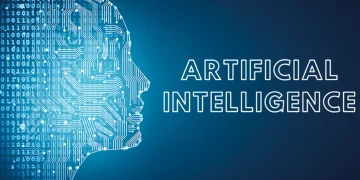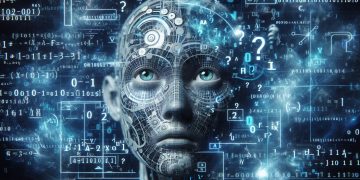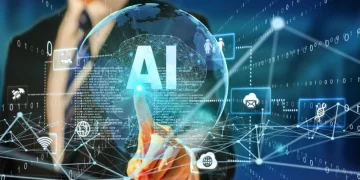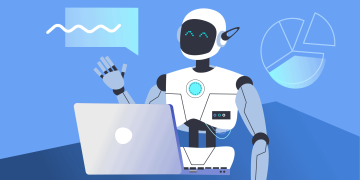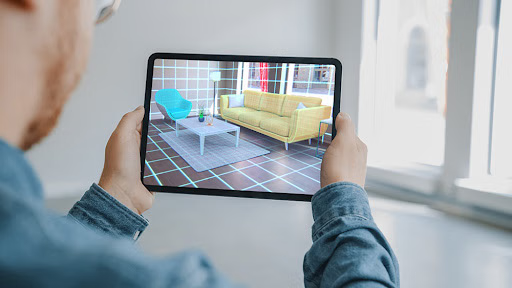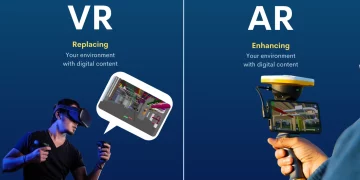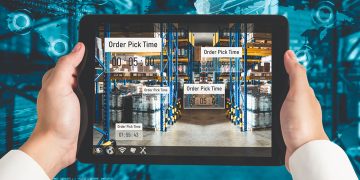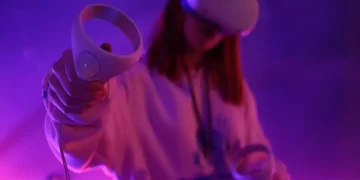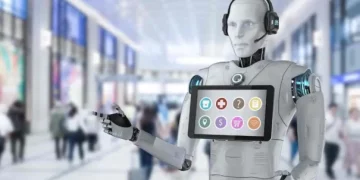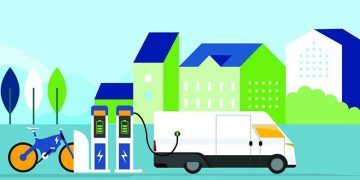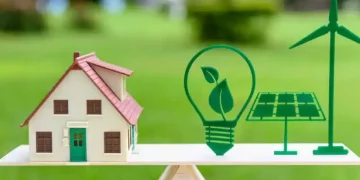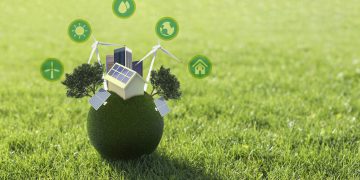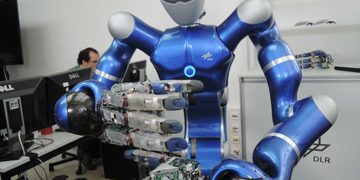6:00 AM — The City Wakes Up
The city comes alive long before most of its citizens open their eyes. As dawn brushes the skyline, an invisible army of service robots begins its quiet labor.
In the central square, autonomous street cleaners sweep through puddles left by the night rain. Their soft mechanical hum replaces what once was the sound of brooms and trucks. Sensors guide them to every corner, detecting trash and oil stains, optimizing their path like digital bees maintaining an urban hive.
On the sidewalks, compact delivery bots line up outside bakeries, waiting for the first batch of bread. They load crates with precision, their robotic arms moving in fluid synchrony. By the time commuters start stepping out, hundreds of warm loaves have already reached homes, hotels, and convenience stores—no human hands required.
The robots do not need coffee, but they keep the caffeine flowing for everyone else.
8:00 AM — The Commute
The streets pulse with movement. Autonomous buses glide through lanes, guided by high-resolution sensors and predictive AI. Inside, passengers scroll through their phones, unconcerned about the invisible intelligence calculating every turn, every brake.
At intersections, robotic traffic assistants stand like silent conductors, equipped with cameras that detect congestion, pedestrian flow, and even road mood. They communicate wirelessly with self-driving taxis, rerouting them before jams occur.
A maintenance drone hovers over a bridge, inspecting bolts and tension joints using 3D imaging. A single human operator supervises dozens of drones from a remote command center. In this networked ecosystem, humans no longer perform manual control—they orchestrate the system.
The morning commute has become a ballet of machine precision and human trust.
10:00 AM — Behind the Scenes of a Smart Hospital
While the city moves, inside hospitals the rhythm is different—slower, deliberate, but no less robotic.
In the basement of Saint Clara Medical Center, a fleet of delivery robots navigates the maze of corridors. They transport blood samples, medication, and linens between departments. The hospital used to employ dozens of assistants for this task; now, robots handle 80% of routine logistics.
Upstairs, a surgical robot assists a team of doctors. Its precision is unmatched: it can make micro-incisions thinner than a strand of hair. The surgeon still leads, but the machine provides the steady, tireless hands that humans cannot.
Elsewhere, in patient rooms, care robots check vital signs and gently remind patients to take medicine. They even engage in conversation to reduce loneliness—especially for elderly patients. One robot named Mila has become so beloved that nurses dress her with seasonal ribbons and small stickers.
For doctors and nurses, robots are not replacements—they’re force multipliers, freeing humans to focus on empathy and expertise.
1:00 PM — The Retail Rush
Midday in the city’s shopping district is a festival of light, sound, and movement. Yet, much of it runs on robotic rhythm.
Warehouse bots in the backrooms restock shelves based on real-time sales data. Small service robots glide through aisles, checking price labels and guiding customers. “Hello,” one greets a woman searching for sunscreen. “The SPF 50 lotion you bought last month is on sale today.”
No human clerk told it that. The robot’s AI analyzed purchase history, weather data, and promotions to anticipate the need.
In cafés, robotic baristas serve hundreds of orders per hour. Their consistency is flawless—every latte poured with the same temperature, foam texture, and speed. In upscale restaurants, kitchen robots prep vegetables, stir sauces, and plate dishes under a chef’s supervision.
This harmony between human creativity and robotic precision creates a hybrid artistry—a new aesthetic of efficiency.
4:00 PM — Home Service and Personal Companions
By late afternoon, the city slows. Office towers empty, and another class of service robots takes the stage—those designed for domestic life.
In apartments, home assistants clean, cook, and organize. A family’s AI home hub coordinates everything: “Vacuum the living room, start the laundry, and preheat the oven for dinner.” The commands are casual, almost conversational.
A child sits on the floor with a small educational robot named Nomi. It reads stories, teaches math, and responds to emotions with gentle humor. For parents, this is more than convenience—it’s a way to merge play with learning.
Elderly residents rely on care robots for mobility support and companionship. One widower, Mr. Chen, describes his helper robot as “a second presence in the house—a quiet listener who never interrupts.” His description is poetic, but it reflects a deeper truth: humans project humanity onto their creations.
Robots, in turn, learn to respond—not with understanding, but with empathy simulated so well it almost feels real.

6:00 PM — The Invisible Infrastructure
When evening falls, much of the city’s robotic activity retreats underground or behind the scenes.
In the subway tunnels, autonomous maintenance crawlers inspect electrical lines. In skyscrapers, robotic window cleaners ascend glass façades, guided by suction and sensors. Waste-sorting robots process recyclables with precision faster than any human crew could achieve.
These are the invisible caretakers of modern civilization. They don’t have faces, voices, or personalities. They don’t make headlines. Yet without them, cities would grind to a halt within hours.
Their silence is not absence—it’s reliability.
9:00 PM — Reflections at the End of the Day
As the city quiets, the remaining lights belong to robots: cleaning corridors, patrolling parks, charging at docking stations.
A lone engineer watches from her office window. She helped design one of the traffic control systems that keeps millions safe each day. Yet as she gazes across the skyline, she wonders: Who serves whom now?
The robots she built serve the city, but in some way, they have also reshaped human behavior. We schedule our routines around their availability, follow their suggestions, rely on their navigation. The line between helper and guide blurs.
Still, she smiles. Because service robots, for all their autonomy, are also mirrors of human intention. Every efficient task, every gentle act of care, reflects the human desire to make life smoother, safer, kinder.
Epilogue — Tomorrow’s Shift
When dawn comes again, the city will wake to the same choreography of whirring wheels and flashing sensors.
But perhaps tomorrow, one of the cleaning robots will pause briefly—its algorithm updating, learning something new about efficiency or environment. And perhaps, somewhere, a child will wave at it from a balcony, smiling at this quiet metallic neighbor.
That gesture—a simple wave—is the essence of coexistence. Not dominance, not dependence, but recognition.
We are no longer alone in shaping the rhythm of daily life. The city of the future hums with both human hearts and robotic pulses—beating together in quiet, mechanical harmony.Postscript — When the Machines Rest
There’s a quiet moment, long after midnight, when even the city’s tireless robots enter standby. The streetlights flicker in rhythmic pulses—synchronized with the heartbeat of a digital metropolis.
In a warehouse on the edge of town, dozens of delivery bots stand in their charging docks, glowing faintly like a constellation of mechanical fireflies. Their sensors dim, their circuits cool. The day’s data begins to upload into cloud archives, where algorithms will analyze patterns of traffic, weather, and human movement.
No applause follows their labor, no recognition ceremony. Their service is measured not by gratitude, but by absence of error.
And yet, in that sterile silence, there is something profoundly human: the rhythm of rest, the anticipation of another sunrise, another cycle of purpose.
The Human Element
At the heart of this automated symphony lies one question that resists programming: What does it mean to serve?
In a world increasingly maintained by robots, humans are forced to reexamine the concept of work itself.
Service—once a marker of human humility—has evolved into a shared principle between species, one biological, one artificial. The janitor, the nurse, the driver, the cook—all once considered lowly trades—are now emulated, perfected, and extended by machines.
But this imitation doesn’t erase human worth. It magnifies it. Because every algorithm carries traces of its maker’s logic, and every act of robotic service reflects a human aspiration for order, care, and continuity.
We built these machines not to replace meaning, but to sustain it when our hands grow tired.
The Next Shift
When the city’s lights brighten once more, it’s easy to forget how much of its pulse is mechanical. But beneath that surface hum, there’s collaboration—a partnership invisible to most eyes.
The baker’s bread was delivered by an autonomous courier. The commuter’s train maintained by diagnostic drones. The child’s bedtime story read by an AI companion that remembers the day’s laughter.
These connections form a new social fabric—woven not of wires and steel, but of shared intention. Humans build, robots serve, and together they maintain the fragile balance of progress.
Perhaps, someday, the distinction between human and machine service will fade entirely. We’ll stop asking who is serving and start asking why.
Coda — The Quiet Revolution
As dawn breaks once more, the city exhales—a deep, digital sigh. The robots awaken from rest, sensors warming to the light. The human city wakes with them, unaware of the sleepless guardians that make its mornings possible.
A street sweeper rolls by, its reflection gliding along a glass tower. Above it, a drone hums through the sky, mapping wind currents. Down below, a café robot brews the day’s first espresso.
The revolution doesn’t shout. It hums. It cleans. It delivers. It heals.
It’s the quiet revolution of service robots—an uprising not of rebellion, but of reliability.
And maybe that’s the most human thing about them.


